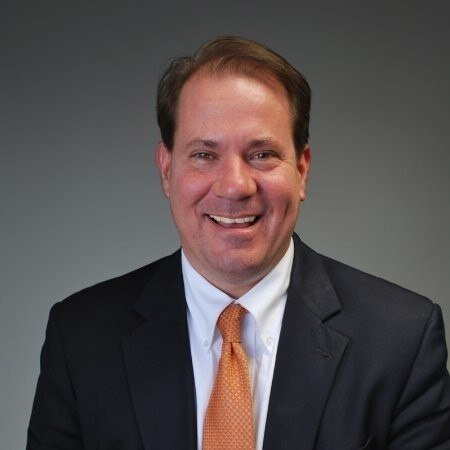Contrasting personalities seeking Salisbury mayor's post
As the calendar flipped from 2022 to 2023, Jake Day was cruising along as Salisbury mayor, overseeing major infrastructure and redevelopment efforts he had championed for a decade in city …

You must be a member to read this story.
Join our family of readers for as little as $5 per month and support local, unbiased journalism.
Already a member? Log in to continue. Otherwise, follow the link below to join.
Please log in to continue |
Contrasting personalities seeking Salisbury mayor's post
As the calendar flipped from 2022 to 2023, Jake Day was cruising along as Salisbury mayor, overseeing major infrastructure and redevelopment efforts he had championed for a decade in city politics.
A housing shortage, combating homelessness, strengthening neighborhoods and the next fiscal year’s budget were at the top of his task list .Residents were expressing no doubts that the mayor-wonder would somehow manage to address each of the pressing concerns.
Then Day’s phone rang.
It was newly installed Gov. Wes Moore. “Come join my cabinet as Housing and Community Development Secretary,” the governor said.
Within mere days, Salisbury’s executive leader was off to Annapolis, creating a leadership vacuum larger than any in recent Salisbury history. To make the leadership challenges even worse, Day took the city’s highly reliable City Administrator, Julia Glanz, with him to serve as a Deputy Housing Secretary.
The City Council immediately appointed their leader, Council President Jack Heath, as Acting Mayor. Heath announced he would run for re-election, promising to maintain the same degree of progress for which Day had become known.
The leadership crisis had been averted.
Soon into his tenure, however, the 77-year-old Heath began having health issues. It wasn’t that the pressure of the job was getting to Heath, his health problems were regarded as typical,
Still, when the official filing deadline arrived in September, Heath removed his name as a candidate.
The potential for a leadership crisis had suddenly returned. City Council member Megan Outten was an 11th-hour entry into the mayor’s race, which already included candidates Jermichael Mitchell and Randy Taylor.
The Salisbury mayor’s job is one of the pre-eminent political leadership posts in the entire region. Salisbury is essentially the capital of the Eastern Shore. Its strong-mayor form of government allows whoever holds the mayor’s seat great power in charting the city’s course.
The other cities on Delmarva are attuned to what happens in Salisbury, and have been known to style their own goals for progress based on what they see in Salisbury.
Different personalities
As personalities, the three mayoral candidates could not be any different.
Mitchell, 39, is a youth leader, a former city neighborhoods official and an outspoken advocate for inclusion and change.
At age 30, Outten is the only candidate with City Council experience – she was appointed to Heath’s District 3 seat when he became mayor. Though she was a Wicomico County Council Democratic candidate last fall, she has not won an election.
Taylor, 58, a former commercial banker with M&T Bank and political conservative who now restores homes and operates a rentals business, has centered his campaign on challenging the city’s decision-making process in awarding surplus properties to developers.
Jermichael Mitchell
A lifelong Salisbury resident and one-time basketball star at Wicomico High School. Mitchell lives in the city’s Doverdale neighborhood.
Professionally, he manages Minary’s Dream Alliance, which operates an adolescent substance abuse program in Cambridge.
He has a six-point program as part of his campaign agenda called “Champions.” His platform stresses inclusion and total public feedback; he has been critical of city leadership that has focused too much on Downtown, at the expense of the neighborhoods.
“I would like to ‘Champion’ Salisbury back to its greatness,” Mitchell said.
“A lot of our community has been forgotten about, while Downtown Salisbury has been our focus. There are people who are worried a lot about what’s going on – and they feel forgotten.”
Mitchell has raised questions about the city’s leasing of the old Fire Department Headquarters building, the need for the under-construction Unity Square and has voiced opposition to a city-state proposal to build a traffic circle at Mount Hermon Road, East Main Street and ong Avenue.
He supports a state-backed plan to build a conference center/hotel on former city property on Route 13.
While Mitchell said he acknowledges the need for an expansion of housing in the city – especially affordable housing – he said he’s unsure that the city truly benefits from tax abatements and fees forgiveness that encourage development.
Mitchell said his first actions as mayor would be to perform a needs assessment on pending city projects, evaluate the city’s staff and “dig right into the budget.”
“There is too much info that has been hidden from the City Council,” he said.
His top-three priorities: creating jobs, encouraging affordable housing and working with city police and juveniles to stem crime.
“Juvenile crime is related to mental health issues,” he said. “Police need more training on mental health so they can perform correctly when engaging the public. There needs to be more juvenile social workers in the Police Department.
While he has exposure to city government from his time as a Salisbury employee, Mitchell said his devotion to the mayor’s post could overcome any lack of experience.
“People without experience can be hired in any job, and if they have a passion, they can learn,” he said.
Mitchell made news last spring when he accidentally discharged a handgun in an apartment in the city limits, nearly injuring a neighbor.
Calling himself a “Second Amendment advocate and avid gun owner,” Mitchell said he was handling the weapon when it went off accidentally.
He said at an election form this month that he has since taken gun safety classes and is currently completing the 100 hours of community service that was part of his punishment.
Mitchell said his primary mission will be to “true inclusion – leaving no one out.”
“We can continue beautifying our city and growing Downtown,” he said, “but we need to get back to our neighborhoods – get back to the people who matter and start listening to those people.
Megan Outten
Outten is a lifelong city resident who now lives on Winder Street in the Camden neighborhood.
She works for an offshore wind company and is among the three youngest people ever to run for Salisbury mayor.
“Progress” and “moving forward” are her campaign’s action words. Among the three candidates, her vision of the city’s current state is by far the most positive, though she acknowledges the challenges.
“Salisbury has been transformed in the last decade,” Outten said. “Families are moving here. Businesses are thriving.
“Progress came on the backs of leaders with visions – and they moved us forward. That’s what we need to keep doing – moving forward,” she said.
While Outten’s vision most closely matches former mayor Jake Day’s, she has called for a review of the city’s infrastructure priorities.
On the East Main Street traffic circle, for example, she voted to halt movement on the project until more public input could be heard.
Like Day, she has said repeatedly the mayor’s role is to increase business opportunities, while also addressing needs in the neighborhoods.
Outten has also attempted to articulate why the lack of housing in the city – both affordable and upscale – is vital to the city’s continued progress. She is a proponent of the “Here Is Home” program which offers developers expanded incentives.
“We have to be a Housing First city,” she said. “We have to attract homebuilders – incentives must continue to happen. I want to see developments and I want to see them thrive.”
Outten said her top-three priorities will be crime, housing and jobs. She has also called for more attention to the opioid epidemic, which has crippled communities all across the nation.
She said curbing juvenile crime will require “multifaceted solutions,” including more funding for police, collaboration with the Wicomico Sheriff’s Office and nonprofits, and an enhanced dialogue with the school system.
As the only contender currently in city government, Outten said her perch on City Council “has allowed me to receive hands-on experience.”
As mayor, the “city staff is made up of leaders I can pull from,” she said. “I will continue surrounding myself with those phenomenal department leaders that we already have in the city.”
Outten has faced questions about a driving-while-intoxicated incident that occurred April 15, 2021, on Snow Hill Road in Salisbury, for which she was convicted.
“It isn’t a proud moment of my life,” she said at a recent election forum. “I have done my best to show my track record as a leader. I think that what I have overcome has made me more compassionate.”
Outten said she is a supporter of the much maligned Vision Zero plan, a national program designed to increase pedestrian safety citywide. “Salisbury was first to implement it in the state, and the state has now adopted it for all its communities.” she said,
Saying Salisbury needs “a leader who can be a representative for all,” Outten stressed her business and progress buzz words.
“We need a leader in this city who is going to be able to provide opportunities for our business, housing for our families and an opportunity for our youth to flourish,” she said.
“I love this city. I was born here. I was raised here. And it’s because of the progress we have made that I’ve had the luxury of being able to call Salisbury my home still today,” she said.
Randy Taylor
Another lifelong Salisbury resident, Taylor purchased his current North Camden home in 2000, converting it from a 14-unit rooming house into a grand single-family home, where he and his now former wife raised their two children.
Six years ago, Taylor left the banking industry to form a historic restoration business.
He readily admits that a frustration with the city’s government helped propel his candidacy – though he had thought for years about seeking the mayor’s seat.
“I saw things no one seemed to be aware of,” he said. “I saw things happening where there didn’t seem to be broad community buy-in.”
Taylor has repeatedly questioned the manner in which the city has disposed of its surplus properties. Developers bid on these tracts – most of which have been in the city’s hands for years after the city assumed failed business sites – and the routine criticism is that developers pay far less than the assessed value.
Taylor has most recently criticized the city’s role in building a parking garage as part of Salisbury Town Center on Lot 1 – a plan that he says will result in the city losing $400,000 or more each year.
He has also assailed city spending in recent years, pointing out the city has raised property taxes five times in 11 years, while also benefiting from a 20 percent increase in the accessible base.
“The dialogue I have with people in the city is different from what you hear at council meetings,” he said, meaning the council and the citizens are not on the same page issues-wise.
While questioning some recent construction, however, Taylor maintains he is pro-development.
“I am pro-development. I am pro-Downtown. There is a lot that can be done in these seas of parking that we have Downtown,” he said.
A problem, Taylor said, is that when city officials communicate development goals,” they are “heavy on the big picture, light on the questions.”
Taylor is the only one of the three candidates to declare panhandling as an issue that needs to be strongly addressed, pointing to that perpetual problem as a quality of life issue.
On affordable housing, he has reminded potential voters that housing projects proposed for Downtown do not allow for affordable housing.
“The Smart Growth model has made creating housing more difficult, expensive and lengthy,” he said. “We’ll need to utilize the existing infrastructure in the neighborhoods.”
Like Outten, he said he would rely on city staff to help him gain municipal and political experience.
“There are plenty of talented people who work for the city,” he said,
Taylor has been criticized as benefiting from the same city/developer policies that he has criticized.
In 2004, Taylor purchased the cleared site of the old Ulman Theater on West Main Street. According to city records, he paid $25,000 for what is now known as Parker Place. The tract had an estimated assessment value of $125,000 at the time.
Under the conditions of the sale, Taylor and his wife operated a garden center on the property, off and on for several years.
Recently, when discussing the case, Taylor pointed out that few businesses last 19 years, so it’s unreasonable to think the Parker Place garden center should still be in operation.
At a mayoral form this month, he called the $125,000 assessment “a rogue appraisal” and stated that no developer would have ever paid such a price.
Taylor said his chief mission is to “make Salisbury an affordable place for people to live, raise their families and live their lives.”
“I am running for mayor because I love Salisbury, I have a particular set of skills, and I can help guide her.
“What I have seen (in recent years) has really upset me,” he said. “Transparency and progress is where I’m headed with this administration.”









 By
By 



